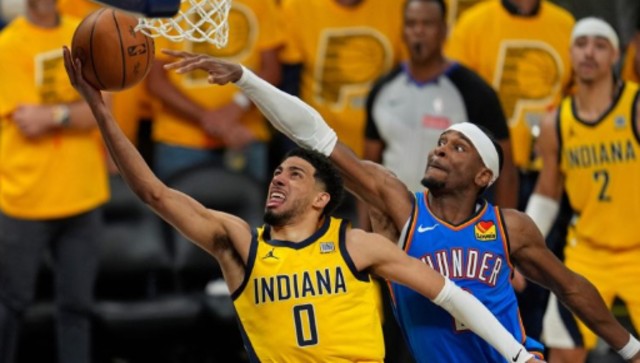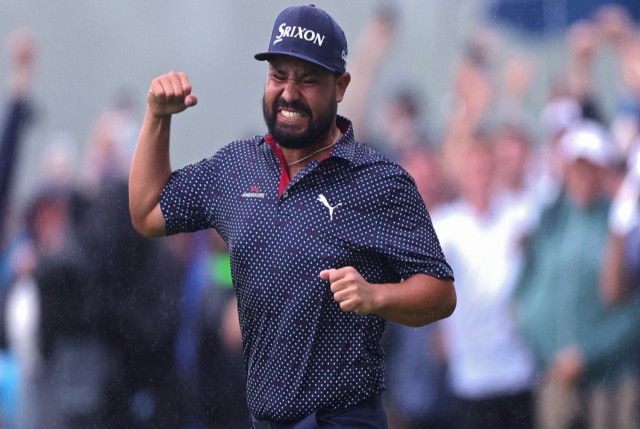
Canada's Austin Smeenk took home gold in the men’s T34 800 meters at the Paris Paralympics. The Canadian team celebrated doubling their gold medal count, going from five wins in Tokyo 2020 to ten at these Games. (Christophe Ena/The Associated Press)
Canada's performance at the Paris Paralympic Games marked a significant return to form, surpassing recent struggles. After a tough Tokyo outing during the pandemic, Canadian athletes rebounded strongly in Paris, winning 10 gold medals—their highest tally since the 2008 Beijing Games. Canada's total medal count reached 29, matching the results from the 2016 Rio Games and far exceeding the 21 medals earned in Tokyo three years ago.
The COVID-19 pandemic had a severe impact on para-sports, with international and domestic competitions being cancelled. Canadian athletes faced additional challenges due to strict pandemic restrictions, which affected their training and preparations for the Tokyo Games. However, with better conditions and preparation ahead of Paris, Canadian athletes showed their full potential.
Karen O'Neill, the CEO of the Canadian Paralympic Committee, highlighted that the results in Paris represented a positive turning point for Canada. She acknowledged that the pandemic was particularly tough on Paralympians, as many essential supports were not available to them during that time. The strong showing in Paris signalled a recovery and renewed momentum for Canadian para-sports, especially in the summer events.
Canada's athletes won medals in seven different sports at the Paris Paralympics, with swimming and track and field leading the way with a combined total of 22 medals, including all 10 golds. The mix of experienced veterans and rising stars contributed to the success. Catherine Gosselin-Despres, the CPC’s chief sports officer, praised the athletes for their performance and emphasized the importance of these two sports in the Paralympic movement.
Nicholas Bennett from Parksville, B.C., emerged as a breakout star in Paris, securing two gold medals and one silver in swimming. Despite the loud and energetic atmosphere at the La Défense Arena, Bennett stayed focused and delivered impressive performances. Reflecting on his journey, the 20-year-old swimmer expressed excitement about competing at such a high level and described the experience as unforgettable.
In another highlight, para canoeist Brianna Hennessy from Ottawa won Canada's first Paralympic medal in canoeing with a silver. Hennessy, who was chosen to carry Canada's flag at the closing ceremony alongside Bennett, spoke passionately about the evolving nature of para-sports and the broader movement to ensure that people with disabilities are seen and respected within their communities.
Canada's women's sitting volleyball team also made history by winning bronze in Paris, marking the country’s first Paralympic team sport medal since 2012. This achievement showcased the growing strength of Canadian team sports in the Paralympic arena.
A notable aspect of Canada’s success in Paris was the adaptability of many athletes, who transitioned from one sport to another. For example, Cody Fournie from Victoria won two wheelchair racing sprints after previously competing in wheelchair rugby for a decade. Similarly, Nathan Clement from West Vancouver, B.C., earned a cycling silver medal after competing in swimming at the 2016 Paralympics. Gosselin-Despres stressed the importance of maintaining flexibility within the Canadian para-sports system to support these athlete transitions.
For the first time, Canadian Paralympians in Paris received the same medal bonuses as their Olympic counterparts—$20,000 for gold, $15,000 for silver, and $10,000 for bronze. The Canadian Paralympic Committee funded these bonuses through an $8-million endowment, with significant contributions from health tech entrepreneur Sanjay Malaviya and the federal government.
The Paris Paralympics attracted strong support from French fans, with over 2.3 million tickets sold, making it the second-highest attended Paralympic Games after London in 2012. O'Neill expressed hope that Canadians would take notice of the power and talent of their Paralympic athletes, emphasizing the need for greater accessibility in communities across the country.















